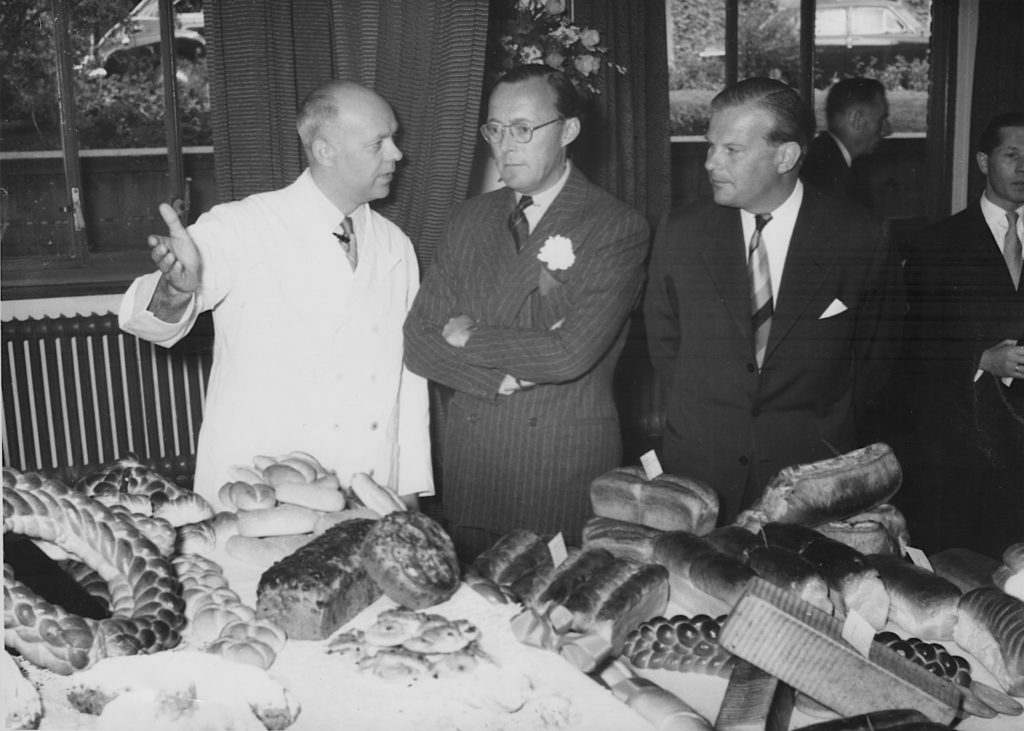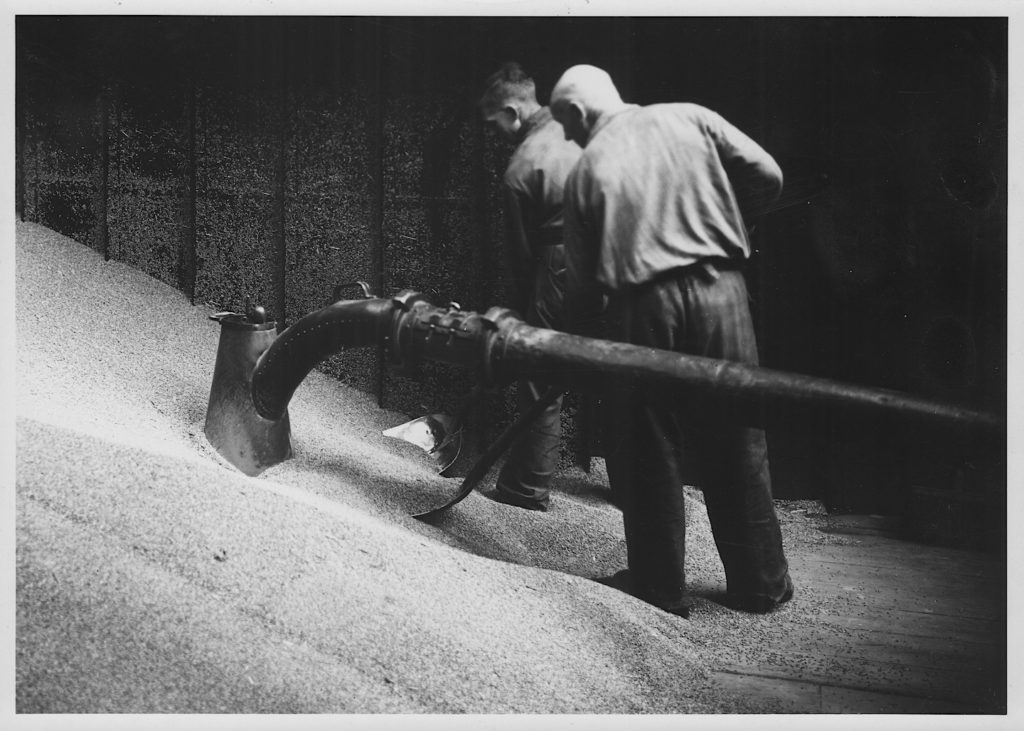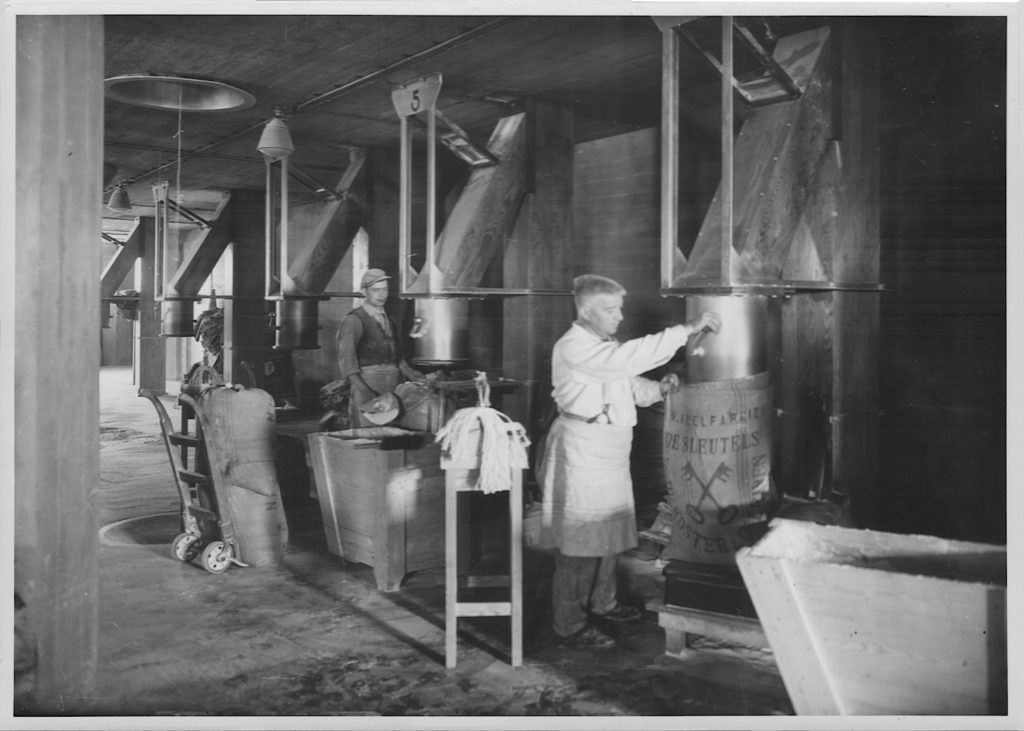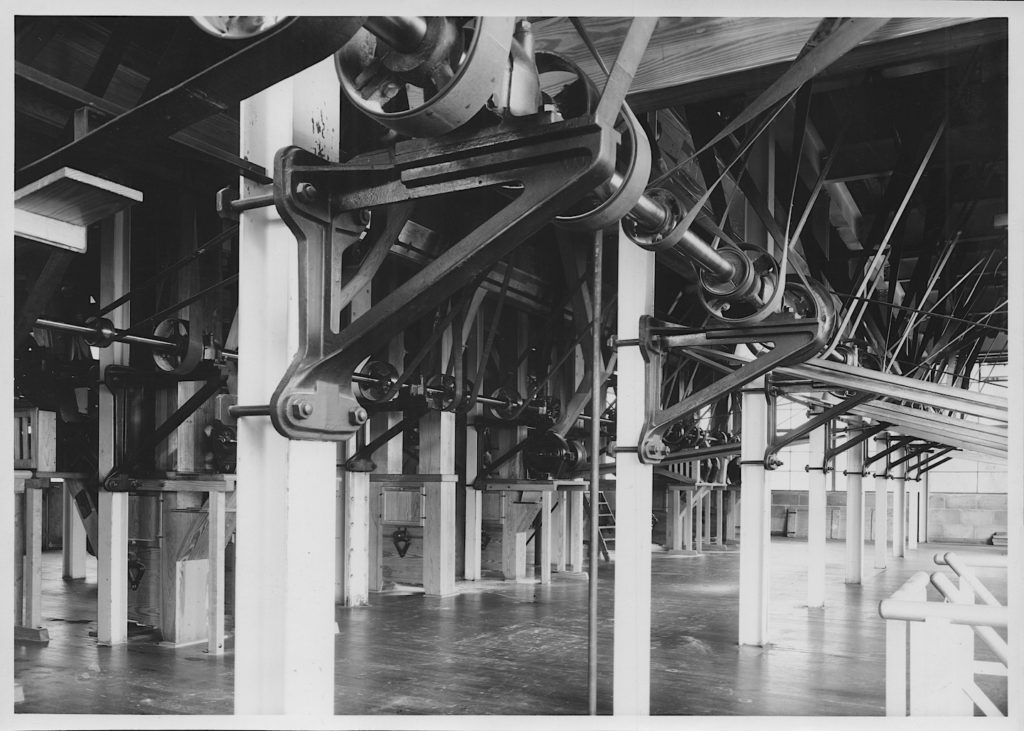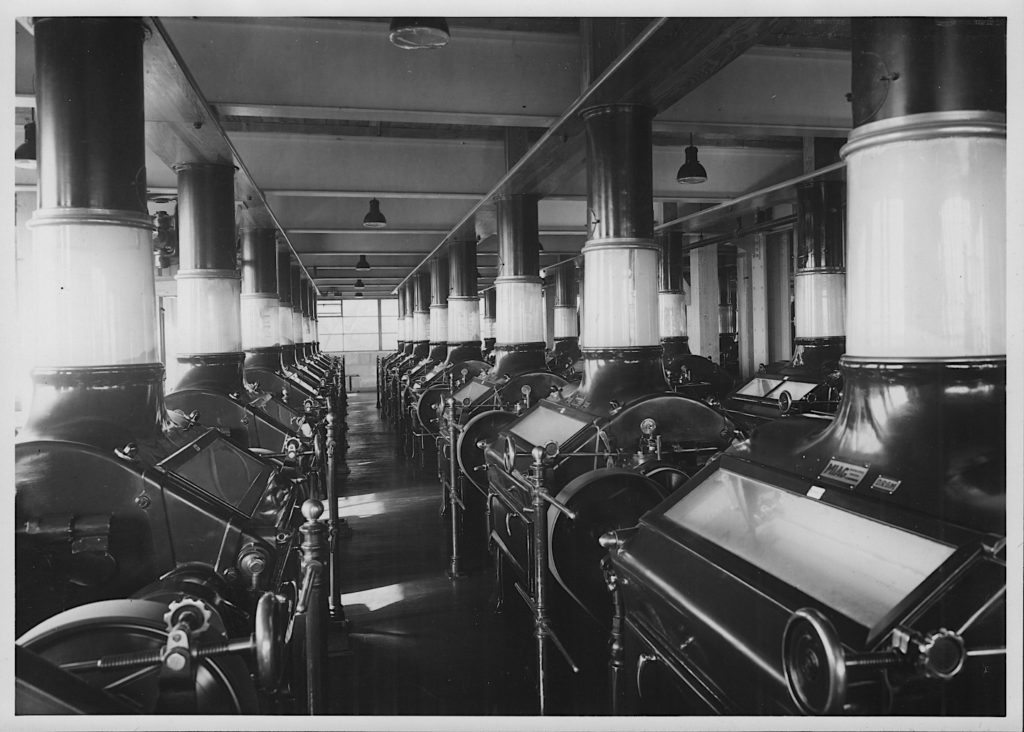INDUSTRIAL HERITAGE
De Meelfabriek is an industrial complex comprising several large buildings. Flour used to be produced here, with the various types of grain brought in by boat along the nearby canals. The mill was founded in 1884, but was closed down in 1988 for economic reasons.
In its day, the factory was a state-of-the-art steam-driven facility. The owners used the latest technology, such as pneumatic grain unloading, and installed electric lighting, making it one of the first companies in Leiden to have this. After the Second World War, the mill went through a period of great prosperity. By the late 1950s, 150 production workers were producing 420 tonnes of flour daily, enough to make 750,000 loaves of bread. This level of production met some 20% the demand of the Dutch population.
The buildings are situated on top of a bastion that was part of Leiden’s historical fortifications. Originally this was an empty strip of land surrounding the entire city, but it was turned into an industrial area during the nineteenth and twentieth centuries. Most of the buildings were dismantled in the late twentieth century.
At the time when the mill was finally closed down, there was no interest in reusing the site, so Leiden city council was in favour of total demolition of the factory buildings. Property developer Ab van der Wiel purchased De Meelfabriek, convinced of the importance of preserving and redeveloping industrial buildings. The complex is now one of the most important remnants of Leiden’s rich industrial past and many of the buildings are listed.
It is one of the city’s largest historical landmarks, while also being a prominent part of Dutch industrial heritage.
Bij een grootschalig project als De Meelfabriek is samenwerking van groot belang. We zijn dan ook dankbaar voor onze trouwe partners:
Hylkema Erfgoed
Nationaal Restauratiefonds
Rijksdienst voor het Cultureel Erfgoed
Provincie Zuid-Holland

